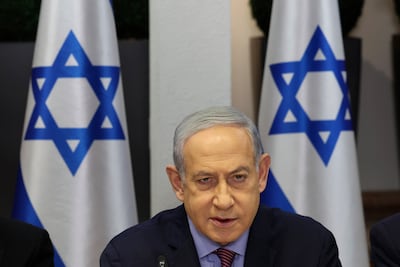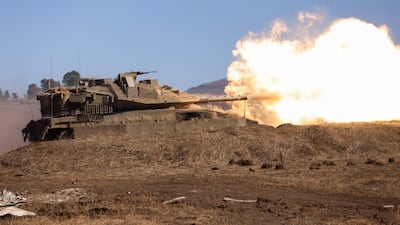The question of perceptions is at the heart of conflicts throughout the world. What each side thinks determines its actions, and these partly define the direction of a conflict. That has to be kept in mind today, amid reports that Israel and Hezbollah may soon escalate their clashes along the Lebanon-Israel border into a full-fledged war.
Against a western narrative that Israel is advancing in Gaza and that Hamas’s defeat is a matter of time, Hezbollah and its allies have a somewhat different reading. Even if there are significant shortcomings in the way the sides interpret what is happening, the real question is what they are getting right and how this will affect their choices.
For Hezbollah, it’s important to understand the factors that are pushing the party to avoid a major conflagration that may soon spread to the regional level. Hezbollah simply does not regard a major war as necessary. As it watches the progression of the Israeli invasion of Gaza, what it sees, or believes it sees, are major Israeli missteps.
First, while the Israelis have penetrated large areas of Gaza, their control is tenuous. For example, not long after Israel announced it had taken control of Gaza City, Hamas released Israeli hostages in a public display organised in the heart of the city.
Israel has also announced it has operational control over the northern half of Gaza, yet it continues to fight Hamas there. The battles over the Jabalya and Shujaiyya quarters have taken weeks, with Israeli casualties rising. As one Israeli official told Le Monde, “In a situation where there’s a city underground, it’s difficult to declare total control”, referring to the network of Hamas tunnels honeycombing large parts of Gaza.
On the political front, Hezbollah also considers that Israel is in a bind. It remains unclear what will constitute an acceptable triumph for the Israeli cabinet. Nor does its army seem nearer to killing senior Hamas leaders, which might allow Israel to declare victory. The more Israel’s armed forces wantonly destroy the territory and say many more months of fighting are needed, the less they seem to have a well-defined objective.
The notion that Israel is bogged down and directionless is circulating in many media outlets, including those sympathetic to Hamas and the so-called “resistance axis”. The pro-Hezbollah Al-Akhbar, for example, has focused on how Israel’s cabinet is divided over what will happen in Gaza once the fighting ends, and the tensions this has generated with the Biden administration.
Overstating Israel’s difficulties is part of Hezbollah’s psychological warfare. However, when this echoes what Israeli allies have said previously, it takes on greater credibility. For example, US President Joe Biden told the Israelis in October that their wartime decisions required “being deliberate. It requires asking very hard questions. It requires clarity about the objectives and an honest assessment about whether the path you are on will achieve those objectives”. The apparently grinding and as-yet indecisive nature of the Gaza invasion seems to confirm those doubts.
Why does this matter? Because Hezbollah, and with it Iran, will avoid being drawn into a conflict they think Israel wants to provoke, believing the Israeli leadership may try to use this to extract itself from its predicament. That perhaps explains how the party responded to Israel’s clearly provocative killing of a senior Iranian Quds Force commander, Radhi Mousavi, in Syria on December 25.

The day after he was assassinated, there was an uptick of Hezbollah attacks against Israeli targets along the border and in the occupied Shebaa Farms. For the party, this was necessary in light of Mr Mousavi’s assassination. However, one day later the party scaled down its response, amid Israeli threats that the situation on the Lebanese front was “unsustainable”, an idea echoed by its allies in Washington.
Hezbollah intends to maintain this balancing act for as long as it can, aware that the Biden administration considers an Israeli war with Lebanon a red line, as it could well provoke a regional conflict that pushes the US into a confrontation with Iran. Mr Biden wants to avoid this at all costs in an election year.
This situation of unstable stability may have a paradoxical impact on Israel. On the one hand it will increase Israeli frustrations, creating conditions for a stronger reaction; while on the other, Israel must realise that opening a Lebanon front would be very risky and lead to more pronounced US-Israeli strains, pushing Israel avoid this outcome.
At a time when the Israelis are still far from achieving a convincing victory in Gaza, expanding their conflict to Lebanon and fighting a more redoubtable adversary in Hezbollah make little sense. This is all the truer if the US opposes it. Moreover, Israeli Prime Minister Benjamin Netanyahu is contested at home and could pay a high price for widening a war that Israelis might view as his opportunistic ticket to political survival.
For all these reasons, Hezbollah and its allies will continue to believe that Israel is trapped on its northern border, with few options to end the situation. This was the tenor of a statement on December 31 by Hezbollah’s deputy secretary general, Naim Qassem. That is why if any one crosses the Rubicon and initiates a much broader, more destructive, war in Lebanon, it is likely to be Israel, not Hezbollah, Iran, or their partners.


















